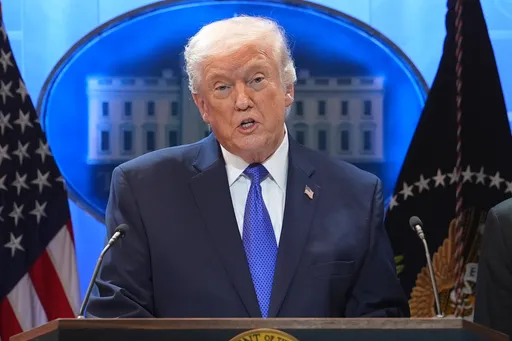Australia's opposition leader Anthony Albanese has vowed to make the country a renewable energy "superpower", after declaring victory in national elections.
The incumbent conservative Prime Minister Scott Morrison conceded election defeat on Saturday, hours after voters issued a stinging rebuke of his party's inaction on climate crisis.
Morrison acknowledged a "difficult" and "humbling" day for his Liberal party, which has governed Australia for the last decade.
"Tonight I have spoken to the leader of the opposition and the incoming prime minister, Anthony Albanese, and I have congratulated him on his election victory," he told supporters in Sydney.
With almost half the votes counted, Albanese's centre-left Labor was assured of forming the largest party in parliament, but had yet to secure an outright majority.
READ MORE:Polls close, vote counting begins in Australia's tightly fought election
READ MORE:Climate crisis 'greatest threat' to Australia's security
The balance of power could yet rest with a string of climate-focused independent candidates who routed Morrison's Liberals in a string of once-safe conservative urban seats.
The so-called "teals" - mostly highly qualified women - ran on pro-environment, anti-corruption and pro-gender equality tickets.
Their success came after three years marked by a pandemic and climate-worsened bushfires, drought and floods that upended life for millions of Australians.
"People are saying the climate crisis is something they want action on," said an elated Australian Greens leader Adam Bandt.
"We have just had three years of drought, and then fires and now floods and then floods again. And people can see it, that this is happening and it's unfolding."
READ MORE:World requires $5 trillion by 2030 to fight climate crisis
Action on climate change
"We can take advantage of the opportunity for Australia to be a renewable energy superpower," said the centre-left Labor Party leader Albanese following his victory.
Albanese has promised to cut carbon emissions by 43 percent by 2030 from 2005 levels, boost renewables, offer discounts for electric cars, and help build community-owned solar power and battery projects.
Albanese also vowed to end Australia's "climate wars", adopt more ambitious emissions targets and introduce a federal corruption watchdog - all key demands of the teals.
But he has refused calls to phase out coal use, or to block the opening of new coal mines.
He may now have to cut deals with independents demanding deeper commitments that would risk the ire of the pro-coal and mining union factions of his party.
Albanese often notes he would be the first Australian with a non-Anglo or Celtic surname to be prime minister.
Voting is compulsory, enforced with a Aus$20 (US$14) fine but also rewarded at many booths that fired up barbecues to offer people a "democracy sausage".
The election decides who controls the House of Representatives, the Senate and who lives in the prime minister's "Lodge".
More than seven million people cast early or postal ballots, according to the Australian Electoral Commission.
READ MORE: Summer heatwave 'bleaches' vast majority of Great Barrier Reef























